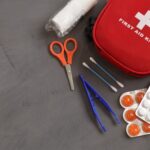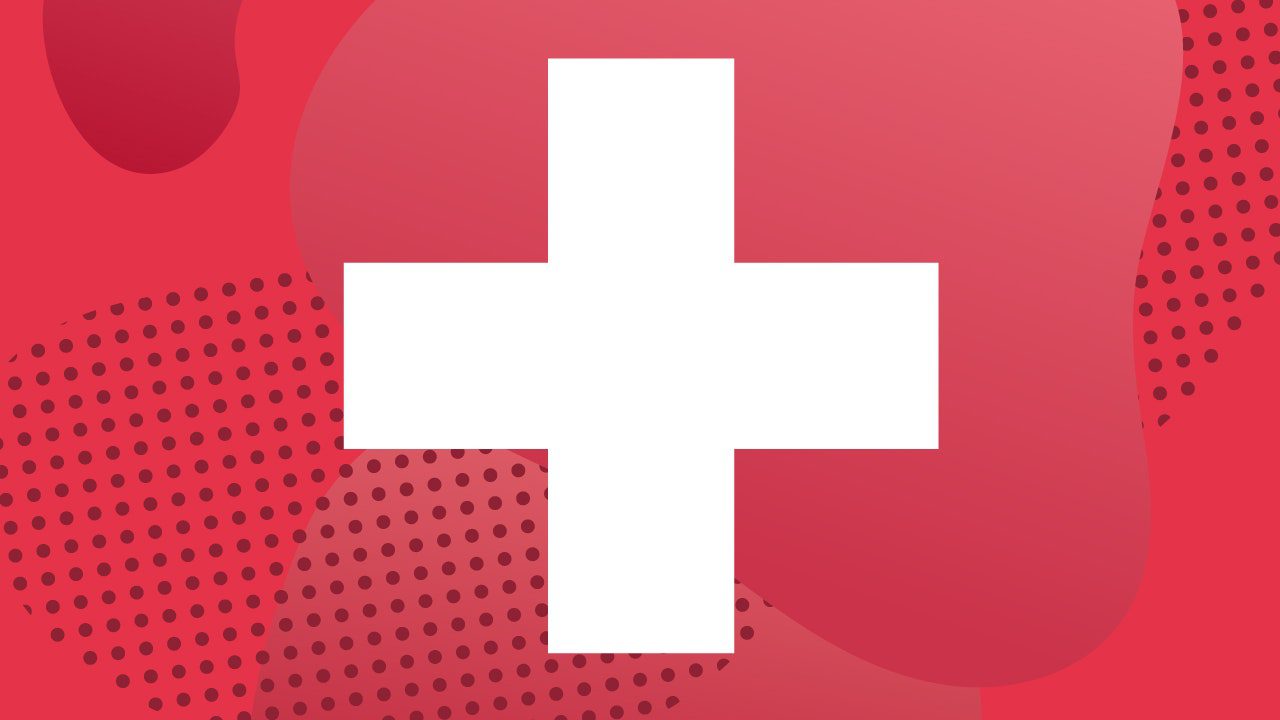Key Takeaways:
- Always have a plan in place for emergencies and communicate it to all family members.
- Pack a well-stocked first aid kit and familiarize yourself with basic medical procedures.
- Research the emergency services available at your destination and keep their contact information handy.
- Stay calm and assess the situation before taking any action during an emergency.
- Teach children important safety measures and how to handle emergencies while traveling.
Common Emergencies to Prepare for During Family Travel
When traveling with your family, it is important to be prepared for potential emergencies that may arise. While it is impossible to predict every possible emergency, there are some common ones that you should be prepared for. These include medical emergencies such as illness or injury, natural disasters like earthquakes or hurricanes, and travel-related emergencies such as lost passports or stolen wallets.
To prepare for medical emergencies, make sure that everyone in your family has up-to-date vaccinations and any necessary medications. It is also a good idea to have a first aid kit with basic supplies such as bandages, antiseptic wipes, and pain relievers. Familiarize yourself with the location of nearby hospitals or clinics in case urgent medical attention is needed.
In the event of a natural disaster, it is important to have an emergency plan in place. This includes knowing the evacuation routes and safe areas in the area you are visiting. Pack essential items such as non-perishable food, water bottles, flashlights, and a battery-powered radio. Make sure to stay informed about local weather conditions and follow any instructions or warnings from local authorities.
Preparation Tips for Families to Handle Potential Emergencies While Traveling
Traveling with your family can be an exciting adventure, but it is important to be prepared for potential emergencies that may occur along the way. Here are some tips on how to handle these situations:
Create an Emergency Plan:
- Sit down with your family before the trip and create an emergency plan. Discuss what each person’s role will be in different scenarios and where you will meet if separated.
- Make sure everyone knows important phone numbers including emergency contacts, local authorities, and your hotel’s front desk.
Pack Essential Items:
- Include a well-stocked first aid kit with bandages, antiseptic ointment, and any necessary medications.
- Bring extra copies of important documents such as passports, IDs, and travel insurance information. Keep these copies in a separate location from the originals.
Stay Informed:
- Research the destination before your trip to be aware of any potential risks or emergency situations that may arise.
- Sign up for travel alerts or notifications from your government’s embassy or consulate in the country you are visiting.
Essential Items to Pack for Handling Emergencies During Family Trips
When traveling with your family, it is important to pack essential items that can help you handle emergencies that may occur during your trip. Here are some items that you should consider including in your packing list:
A Well-Stocked First Aid Kit:
Your first aid kit should include bandages, adhesive tape, antiseptic wipes, pain relievers, tweezers, scissors, and any necessary prescription medications for each family member. It is also a good idea to include a basic first aid manual.
Emergency Contact Information:
Have a list of emergency contact numbers including local authorities and medical facilities in the area you are visiting. Include contact information for your hotel or accommodation as well.
Copies of Important Documents:
Make copies of important documents such as passports, IDs, travel insurance information, and flight itineraries. Keep these copies in a separate location from the originals in case they get lost or stolen.
Emergency Food and Water:
Pack non-perishable food items such as energy bars, canned goods, and dried fruits. Also, carry a sufficient amount of water bottles to stay hydrated in case of emergencies or unexpected delays.
Safety Measures and Precautions for Parents Traveling with Children
Traveling with children requires extra safety measures and precautions to ensure their well-being. Here are some tips for parents traveling with children:
Childproof Accommodation:
- Inspect your accommodation upon arrival to identify potential hazards such as loose electrical outlets, sharp edges, or unsecured furniture.
- If necessary, request childproofing supplies from the hotel such as outlet covers or corner guards.
Keep an Eye on Your Children:
- Always supervise your children, especially in crowded places or near bodies of water.
- Create a designated meeting point in case you get separated and teach your children how to ask for help if needed.
Pack Safety Essentials:
- Include essential safety items such as child-sized life jackets, a portable baby monitor, outlet covers, and a child locator device.
- Carry an updated list of emergency contacts including your pediatrician’s contact information.
Effective Communication with Local Emergency Services in a Foreign Country
In the event of an emergency while traveling in a foreign country, it is important to know how to effectively communicate with local emergency services. Here are some tips for effective communication:
Learn Basic Phrases:
Familiarize yourself with basic phrases in the local language such as “help,” “emergency,” and “hospital.” This can help you communicate your situation to emergency responders.
Use Translation Apps or Cards:
Download translation apps on your smartphone that can help you communicate with emergency services. Alternatively, carry a set of emergency phrase cards in the local language that you can show to responders.
Contact Your Embassy or Consulate:
If you are facing a serious emergency and need assistance, contact your country’s embassy or consulate in the foreign country. They can provide guidance and support.
Important First Aid Skills and Knowledge for Parents Traveling with Family
Having basic first aid skills and knowledge is crucial for parents traveling with their families. Here are some important first aid skills to learn:
CPR and Choking Relief:
- Learn how to perform CPR (cardiopulmonary resuscitation) on both adults and children.
- Know how to relieve choking in infants, children, and adults.
Bleeding Control:
- Learn how to apply direct pressure to control bleeding from cuts or wounds.
- Familiarize yourself with different types of bandages and their uses.
Burn Treatment:
- Know how to treat minor burns by cooling the affected area with running water and applying burn ointment or aloe vera gel.
- Understand when to seek medical attention for more severe burns.
Tips for Managing Unexpected Emergencies While on the Road
While traveling, unexpected emergencies can occur while you are on the road. Here are some tips for managing these situations:
Stay Calm:
In the event of an unexpected emergency, it is important to stay calm and think rationally. Panic can hinder your ability to make clear decisions.
Assess the Situation:
Evaluate the severity of the emergency and determine if immediate action is required. If necessary, call emergency services or seek help from nearby locals.
Follow Safety Guidelines:
If you encounter a road-related emergency such as a car breakdown or accident, follow safety guidelines such as moving your vehicle to a safe location and using hazard lights.
Contact Your Travel Insurance Provider:
If your emergency involves medical assistance or loss of belongings, contact your travel insurance provider as soon as possible. They can guide you through the next steps and provide support.
In conclusion, it is crucial for families to be prepared and knowledgeable about handling emergencies during travel. By planning ahead, staying calm, and seeking appropriate help when needed, families can ensure the safety and well-being of their loved ones in any unexpected situation that may arise.
What qualifies as a travel emergency?
If you have an urgent need to travel internationally within 3 business days due to the critical condition or death of an immediate family member outside the United States, you may be eligible for an emergency appointment.
Which should a family prepare for any emergency?
It is important to have nonperishable food, water, clothing, supplies, and medicine that can last for at least three days. It is recommended to keep a kit at home, at work, and in your car. You can find a detailed list of what to include on the Centers for Disease Control and Prevention website at the following link: https://emergency.cdc.gov/preparedness/kit/disasters/index.asp.
Why is traveling with kids stressful?
Children frequently stay awake until late at night, become distant from their parents, and become overwhelmed due to various factors. I refer to this phenomenon as Family Vacation Stress Syndrome. Naturally, parents also go through their own version of stress, such as tension within extended family, criticism from grandparents regarding their parenting skills, or the pressure of managing logistics.
How much emergency money should you have for a trip?
Preparing for your next trip requires having approximately $100 on hand to handle any unexpected circumstances. It is important to strike a balance between having enough money to cover unforeseen expenses without carrying too much that losing it would leave you financially strained.
What is a believable family emergency?
Examples of situations that can be considered as emergencies include a car collision involving a close family member or someone under your care, the passing away or funeral of a close or extended family member, a natural calamity or any other external threat that endangers the life or well-being of a family member, and a potential risk of emotional or physical harm. This was noted on August 8, 2023.
What is an acceptable family emergency?
A family emergency can encompass a range of situations including the illness of a child or dependent, a car accident, or an unforeseen surgical procedure.





